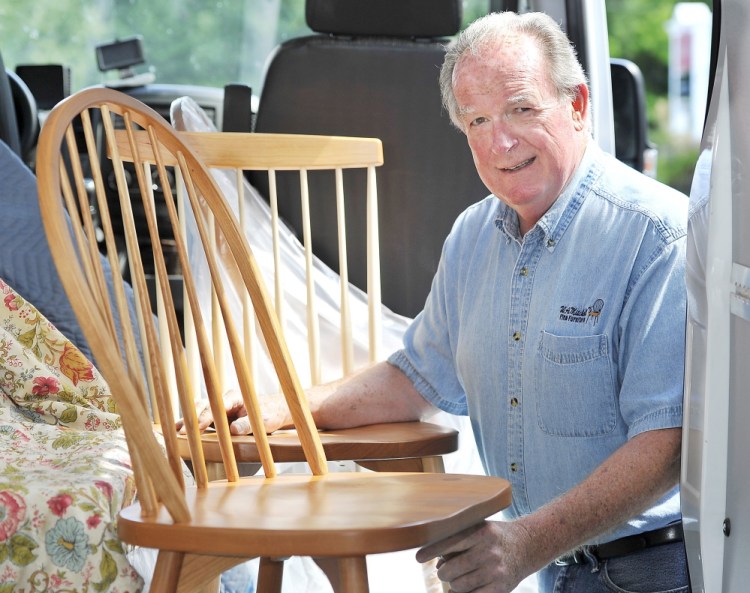High-priced, handcrafted furniture wasn’t at the top of the must-have list for most consumers when the Great Recession hit in 2008.
The stock market was plummeting, unemployment was rising, banks teetered and credit dried up.
For Dan Maxham, dealing with slumping sales was a new experience. The business, W.A. Mitchell Fine Furniture, had been humming along smoothly since he bought it from founder Arthur Mitchell in 2000. The company’s chairs and tables featured clean, Shaker-like lines that were popular with customers and W.A. Mitchell had earned a reputation for quality, backed by a lifetime warranty. Its products appeared in L.L.Bean and Orvis catalogs and in furniture showrooms around New England. A typical dining table and chairs sold for around $5,000.
But furniture sales, high-quality or otherwise, fell as the recession and financial crisis hit. When it came to putting food on the table, people were more concerned with the food than the quality of the table.
Maxham saw the impact in the showrooms of the furniture retailers he sold to. As sales trickled, large, empty areas of showroom floors grew. Store managers were reluctant to buy more inventory that might sit for months before being sold.
Maxham came up with a plan that allowed shoppers to see his products without tying up retailers’ capital.
“We selected about 10 or 11 dealers we felt would survive the recession,” he said, “and those dealers became preferred dealers.”
“Preferred” meant the retailers were offered furniture on consignment. The retailers didn’t have to pay for a piece until it sold; then they paid Maxham and pocketed the markup.
Maxham also made it a practice to help make deliveries to furniture stores in New England, a practice that has continued.
“That gets me into the showrooms and I can talk to the salespeople, because they are the ones who really make the sales,” he said.
Maxham said the consignment approach ended as sales recovered following the end of the recession, although the “preferred dealer” designation continues with a list on W.A. Mitchell’s website. Now the designation refers to dealers who agree to carry a minimum number of Mitchell pieces.
“My sales since then have grown and we’ve got some really great relationships,” said Maxham, who estimated his annual revenue at less than $1 million. “We do a lot of custom work through (the preferred dealers).”
Maxham said he added another craftsman in the past year – he now has eight workers – and added a line of outdoor furniture and some bedroom furniture that’s been well-received.
Copy the Story Link
Send questions/comments to the editors.




Success. Please wait for the page to reload. If the page does not reload within 5 seconds, please refresh the page.
Enter your email and password to access comments.
Hi, to comment on stories you must . This profile is in addition to your subscription and website login.
Already have a commenting profile? .
Invalid username/password.
Please check your email to confirm and complete your registration.
Only subscribers are eligible to post comments. Please subscribe or login first for digital access. Here’s why.
Use the form below to reset your password. When you've submitted your account email, we will send an email with a reset code.